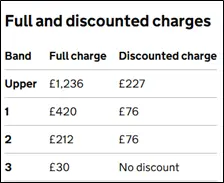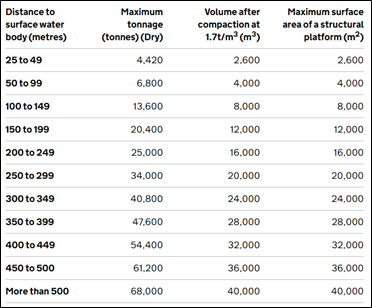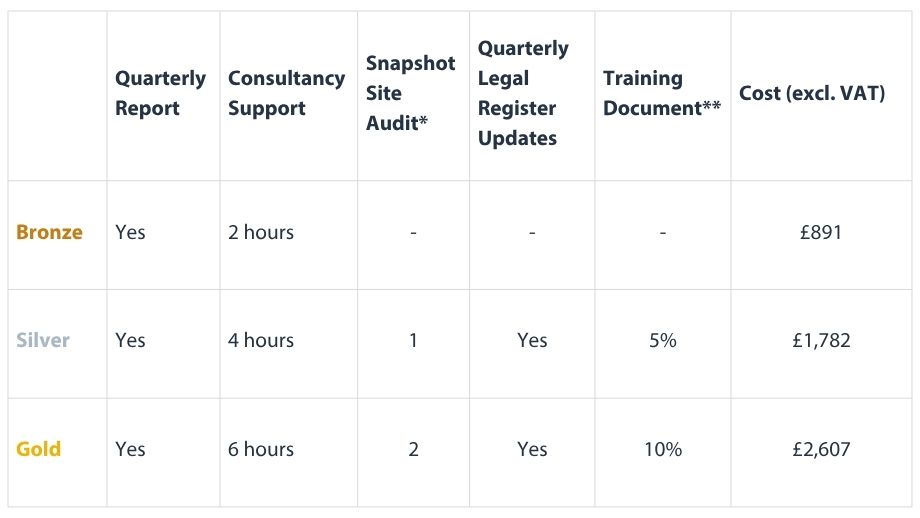Your monthly update on legislation, guidance, interesting news articles, and webinars from the environmental sector.
Guidance
WEEE: collecting used and waste electrical and electronic equipment
The Environment Agency (EA) originally published this guidance on 6th May 2014. The EA has updated the definition of ‘private household’ Waste Electrical and Electronic Equipment (WEEE) to remove outdated references to ‘nature and quantity’ testing and removed the section on ‘WEEE and the Controlled Waste Regulations’ due to outdated reference to ‘nature and quantity’. The link to ‘BSI guide on collecting, moving and treating household appliances such as fridges containing fluorocarbons or hydrocarbons’ has been removed as this has since been withdrawn.
Source: GOV.UK
For the updated guidance, click here.
Construction and demolition waste: how to classify
The EA originally published this guidance on 21st March 2014. The EA has updated the table in the section ‘Metallic waste, including cable’ and removed ‘Persistent Organic Pollutants (POPs)’ from the last two entries, as not applicable.
Source: GOV.UK
For the updated guidance, click here.
Waste exemption charges
The EA has introduced charges for most waste exemptions. The charges are made up of a registration charge and a compliance charge, there is no Value Added Tax (VAT) to pay on waste exemptions. Farmers pay a capped charge for certain exemptions that are often used on farms. See Annex B: Farming exemptions for the list of farming exemptions. Businesses that work only for a charitable purpose do not have to pay for waste exemptions.
The registration charge is £56 each time you register one or more exemptions on a site.
The cost of the compliance charge depends on which band the exemption is in, there are four bands:
- Upper band – £1,236 (this band applies to T8, T9 and U16 exemptions only)
- Band 1 – £420
- Band 2 – £212
- Band 3 – £30
The compliance charge covers the EA’s costs for checking that exemption conditions are followed.
There is a discount if you register more than one exemption in the bands upper, 1 and 2. You pay the full compliance charge for the most expensive exemption, and a discount charge for additional exemption in band upper, 1 and 2. There is no discount for band 3 exemptions, see Table 1 below.
Table 1 Full and discounted charges.

Annex A: Exemptions and charging bands contains the full list of waste exemptions and the bands they are in.
Farmers can register any number of exemptions from a list of exemptions that farmers often use (‘farming exemptions’), for a capped total of £88, plus the £56 registration charge. If your farming exemptions add up to less than £88, you pay the lower amount. Farmers can also register exemptions that are not on the list of farming exemptions – they will pay the standard compliance charge for those exemptions. Read the guidance on choosing the right waste exemptions for your activity to check if you need any other exemptions. Go to Annex B: Farming exemptions to see the list of farming exemptions.
Currently, there is no charge for multiple site or linear network registrations. You can pay for exemptions with a debit or credit card when you register using the waste exemption service. The service will calculate what you owe before you pay anything. You can also pay by bank transfer. You’ll get an email from the registration service with details of how to pay. Check your spam mailbox if you do not see the email. Once your payment has gone through, your exemption will be registered and viewable on the public register for three years. You will not need to make another payment until you register again.
Waste exemptions are free if your business works exclusively for a charitable purpose. If you are authorised under the Misuse of Drugs Regulations 2001 it’s free to register a T28 exemption. You cannot register free online – you need to call the EA to register by phone.
T11 waste exemption: repairing or refurbishing WEEE is not included in the charging bands. It costs £1,221 to register T11 for three years. You cannot register T11 online you need to use form WEEEX001.
You can claim a full refund within 21 days of registering if you make a mistake or change your mind. You can also request a full or partial refund any time while your registration is active, for any of the following reasons:
- accidental overpayment or a system error (full refund),
- duplicate registration (full refund),
- exemption is superseded by permit, unless it’s a farming exemption (pro rata refund),
- the business doing the activity has closed down (pro rata refund),
- an individual holding the exemption has died (pro rata refund).
Source: GOV.UK
For the full guidance, click here.
U8: Using waste for a specific purpose
This waste exemption allows you to recycle waste that does not need treating before being used. It helps to reduce the use of virgin materials. The guidance was originally published on the 28th April 2014, the EA has updated the U8 exemption to clarify when a U8 exemption is not needed as follows:-
You do not need a U8 if you are using virgin wood offcuts, sawdust, or shavings that:
- are for specific use as animal bedding or a surface for training horses,
- are a by-product that has come directly from the sawmill or other producer.
Read Check if your material is waste to find out if your material is regarded as a by-product intended for use, or waste.
There is a charge for the U8 exemption which falls under a band 2 as follows:-
This exemption is in band 2. Read waste exemption charges to find out what the charges and charging bands are.
Your waste must fit withing the waste codes and descriptions set out in the following four tables within the guidance:
Table 1: Waste used for animal bedding and exercise surfaces
Table 2: Waste used for treating water and wastewater
Table 3: Construction purposes
Table 4: Other specific purposes.
Source: GOV.UK
For the full guidance, click here.
Electrical and Electronic Equipment (EEE): producer responsibilities
This guidance was originally published on 1st May 2024 and has been updated to reflect the requirements of the Waste Electrical and Electronic Equipment (WEEE) (Amendment, etc.) Regulations 2025.
The producer definition for EEE has been updated to include an Online Market Place (OMP). Additional requirement for OMP producers to provide a methodology to determine the amount of EEE placed on the market originating from non-UK suppliers.
The number of product categories has been updated from 14 to 15 to reflect the addition of e-cigarettes and vapes.
The section on ‘Non UK based producers’ has been rewritten, including not needing to register as a producer if your legal entity is not established in the United Kingdom (UK) and you are supplying EEE indirectly to the UK. This includes the list of requirements of the first legal entity based in the UK that is making EEE available to the UK market. Recommendations are also given on supply chain checks to ensure the correct legal entity in the UK meets these requirements.
Reference to UK based producers that put EEE onto the market of other member states has been removed as no longer relevant due to European Union (EU) Exit.
Source: GOV.UK For the full guidance, click here.
Holding museum artefacts that contain polychlorinated biphenyls: RPS 346
This Regulatory Position Statement (RPS) does not change your legal requirements under the Environmental Protection (Disposal of Polychlorinated Biphenyls and other Dangerous Substances (England and Wales) Regulations 2000 (as amended) ‘the Regulations’ to identify, label, register and dispose of equipment that contains Polychlorinated Biphenyls (PCBs).
RPS 346 applies to equipment that contains or may contain PCBs held by museums as artefacts for archival, education, research and or display purposes. It does not apply to equipment used to power to the museum, i.e. transformers connected to the power network. This RPS applies when it is not possible to decontaminate equipment or remove PCB containing components as it affects the artefact’s worth.
The EA will not normally take enforcement action against you if you do not comply with the legal requirement provided the following:
- Your activity meets the description set out in this RPS.
- You comply with the conditions set out in this RPS.
- Your activity does not cause (and is not likely to cause) pollution of the environment or ham to human health.
You must comply with the following conditions:
- Compile and maintain an inventory of all artefacts that contain or may contain PCBs and make the inventory available to the EA on request. The inventory must contain a description of the artefact, the usual location of the artefact and an estimate of the amount of PCB containing fluid.
- Identify and register with the EA any artefacts that meet the definition of contaminated equipment in Regulation 2(1) of the regulations and pay the annual registration charge.
- Ensure any leaks of PCB containing fluids from artefacts are contained and disposed of.
- Ensure that the disposal of PCB containing fluid, materials used to contain or clean spilled material or artefacts no longer required by the museum complies with regulations governing the disposal of hazardous waste.
- Ensure that the receiving museum is aware of the need to use this RPS when transferring or loaning relevant artefacts to other museums.
- Have procedures in place to ensure staff, volunteers or contractors working with relevant artefacts are aware of the potential presence of PCBs and know how to handle them.
- Get the EA’s agreement before you use this RPS by emailing PCB-enquiries@environment-agency.gov.uk with ‘Museum artefacts containing PCBs: RPS 346 – for action’ in subject.
- Keep records for at least two years from the date of the last use of the RPS (some records may need to be kept longer) to show that you have complied with this RPS and make these records available to the EA on request.
The EA intends to review this RPS by 30th September 2028 and can withdraw or amend the RPS before the review date if they consider it necessary. This includes where the activity that this RPS relates to has not changed. This RPS remains in force until it is removed from GOV.UK or is otherwise identified as having been withdrawn. You will need to check back from time to time, including at and before the review date, to see if this RPS still applies.
Source: GOV.UK
To read the full guidance, click here.
Using unbound incinerator bottom ash aggregate (IBBA) in construction activities: RPS 247
This RPS does not change your legal requirements to have an environmental permit for a waste operation and groundwater activity when you use unbound Incinerator Bottom Ash Aggregate (IBAA) in:
- building a road, cycleway or pathway sub-base,
- building a structural platform,
- pipe bedding.
The EA will not normally take enforcement action against you if you do not comply with the legal requirement provided that:
- Your activity meets the description set out in this RPS.
- You comply with the conditions set out in this RPS.
- Your activity must not cause (or be likely to cause) pollution of the environment or harm to human health, and must not:
- cause a risk to water, air, soil, plants or animals,
- cause a nuisance through noise or odours,
- adversely affect the countryside or places of special interest.
You must:
- be derived from processed municipal waste incinerator bottom ash,
- be unbound non-hazardous, waste code 19 12 12,
- comply with BS EN 13242 or any revision of that standard,
- if blended with non-waste aggregate, the total tonnage of the blend must meet the limits and conditions in this RPS.
For each delivery of IBAA to the site of use, the end-user must get in writing from the supplier the following:
- date of delivery,
- name and contact details of the producer and distributors (as applicable), including the site of production address,
- quantity supplied (by weight or volume),
- the end user must keep records for two years to show that you have complied with this RPS and make these records available to the EA on request.
You must only store IBAA in the open.
You must not:
- store IBAA pending use for more than six months,
- store more IBAA than you need,
- store or use IBAA within a groundwater source protection zone (SPZ) 1 or 2,
- store or use IBAA within 50 metres of any spring or well, or any borehole used to supply water,
- use IBAA below the water table,
- use IBAA underneath any residential building or garden.
You must construct the surface of a road, cycleway or footpath with an asphalt or other low-permeable material.
You must not:
- install a sub-base more than 40 metres wide,
- install a sub-base more than 0.7 metres deep.
Building a structural platform
You must not build a structural platform:
- that is on average more than one metre thick,
- that has less than 95% coverage with a low permeability surface or building,
- within 25 metres of a surface water body,
- unless it complies with the restrictions set out in the Table 2 below.
Table 2 Distance restriction IBAA

You must use a low permeability surface above the pipe-run with adequate falls to prevent standing water.
You must not:
- store and use more than 510 tonnes in total of IBAA as pipe bedding in any single construction project and pipe run,
- use IBAA as pipe bedding more than 0.3 metres deep in a trench more than two metres wide,
- use the IBAA as a drainage medium.
The EA are consulting on a new standard rules deposit for recovery permit for the use of IBAA. The EA will publish this new standard rules permit alongside a new RPS, which the EA consider is potentially suitable to be an exemption for a waste and groundwater activity under the Environmental Permitting (England and Wales) Regulations 2016. Once the new standard rules permit and RPS are published, the EA will withdraw RPS 247.
A surface water body is a relevant territorial water, coastal water, or inland freshwater (as defined by the Water Resources Act 1991).
A structural platform is an engineered base for an overlying construction feature, for example a:
- building,
- car park,
- retaining wall,
- storage tank.
Pipe bedding is material laid in the bottom of a trench that has been excavated for drainage pipes or other pipelines. A combination of the types of construction activities described in this RPS may take place on the same development. Where this occurs, you must meet the criteria specified in this RPS (e.g., maximum width or thickness) for each individual construction component. Temporary construction features must meet all the criteria and limits set out in this RPS.
The EA intends to review this RPS by 31st July 2026, the EA can withdraw or amend the RPS before the review date if they consider it necessary. This includes where the activity that this RPS relates to has not changed. You will need to check back from time to time, including at and before the review date, to see if this RPS still applies. This RPS remains in force until it is removed from GOV.UK or is otherwise identified as having been withdrawn.
Source: GOV.UK
For the full guidance, click here.
Removing batteries, plugs and power cables from WEEE at HWRCs: RPS 295
This RPS does not change your legal requirement to comply with an environmental permit for a waste operation when you manually remove plugs, power cables and the batteries from WEEE at Household Waste Recycling Centres (HWRCs).
However, the EA will not normally take enforcement action against you if you do not comply with this legal requirement provided that:
- your activity meets the description set out in this RPS,
- you comply with the conditions set out in this RPS.
In addition, your activity must not cause (or be likely to cause) pollution of the environment or harm to human health, and must not:
- cause a risk to water, air, soil, plants or animals,
- cause a nuisance through noise or odours,
- adversely affect the countryside or places of special interest.
This RPS applies when you manually remove the following at HWRCs:
- batteries from small mixed WEEE,
- plugs and power cables from any WEEE.
You must:
- follow the guidance in waste electrical and electronic equipment (WEEE): appropriate measures for permitted facilities,
- remove the plugs, batteries and power cables from the items of WEEE under weatherproof covering,
- comply with any additional requirements of the designated collection facilities code of practice if you are an approved designated collection facility,
- store removed batteries in labelled leakproof containers that are either lidded or stored under cover to prevent any rainwater entering the storage containers,
- store removed lithium-ion batteries separately to other battery chemistries,
- pack and store removed lithium and lithium-ion batteries to minimise the likelihood of electrical shorting, physical impact and overheating,
- label the stored lithium-ion batteries as a fire hazard,
- store and recover, or dispose of the power cables and plugs as waste containing POPs,
- keep records for two years to show that you have complied with this RPS and make these records available to the EA on request.
You must not:
- dismantle or otherwise treat the batteries you have removed,
- mix or store WEEE cable with non-WEEE cable,
- store batteries you have removed for longer than 6 months.
The EA intends to review this RPS by 30th April 2027 and can withdraw or amend the RPS before the review date if they consider it necessary. This includes where the activity that this RPS relates to has not changed. You will need to check back from time to time, including at and before the review date, to see if this RPS still applies. This RPS remains in force until it is removed from GOV.UK or is otherwise identified as having been withdrawn.
Source: GOV.UK
For the full guidance, click here.
Storing and bulking sweeping waste by the waste producer: RPS 65
The EA has made changes to RPS 65 which was originally published on 13th November 2012.
The changes made are as follows:-
- Covers sweepings from construction sites (17 05 04 or 17 09 04)
- Contractors employed by a construction site to carry out the sweeping and then store and bulk the sweepings at a site the contractor controls.
This RPS cannot be used:
- to store sweeping waste at a site not controlled by the producer,
- for gully and interceptor wastes,
- for leaf and grass cutting wastes collected separately from public highway sweepings.
The RPS covers permitted sites that currently accept 20 03 03 to accept 17 05 04 or 17 09 04 whilst permits are updated.
This RPS applies to sweeping waste that is stored and bulked by the waste producer before collection for onward recovery and disposal elsewhere.
The EA intends to review this RPS by 31st August 2028 and can withdraw or amend the RPS before the review date if they consider it necessary. This includes where the activity that this RPS relates to has not changed. You will need to check back from time to time, including at and before the review date, to see if this RPS still applies. This RPS remains in force until it is removed from GOV.UK or is otherwise identified as having been withdrawn.
Source: GOV.UK
For the full guidance, click here.
Using wetland to improve treated effluent discharge: RPS 260
This RPS does not change your legal requirement to get an environmental permit for a waste operation when you use a Nutrient Treatment Wetland (NTW) to improve the quality of treated final effluent discharged from a water and sewerage company Waste Water Treatment Works (WWTW).
This RPS applies to surface flow NTWs with submerged and emergent vegetation where all the following apply:
- they provide further treatment to treated final effluent that has been discharged directly into the NTW from a water and sewerage company WWTW,
- the discharge from the WWTW is authorised by an environmental permit,
- the NTW is not operated by, or on behalf of, a water and sewerage company.
You must:
- ensure your NTW improves the quality of the final effluent received from the water and sewerage companies WWTW,
- provide hydraulically efficient and effective treatment, avoiding preferential flow paths and ‘dead areas’ with limited throughflow,
- follow Natural England’s ‘Wetland Mitigation Framework- Framework Approach for Responding to Wetland Mitigation Proposals’, if your NTW is to achieve nutrient neutrality,
- plant a range of native submerged or emergent (or both) aquatic plants and manage these to maintain a healthy plant population,
- manage and maintain your NTW over its design life and make sure you continue to meet these design and construction requirements,
- have a written and agreed procedure with the water and sewerage company for operating the NTW which must include procedures for communicating effectively on treatment, performance or operational incidents at either the WWTW or NTW that could result in harm to the environment,
- have a decommissioning plan for your NTW, as described in Natural England’s Wetland Mitigation Framework.
You must ensure the NTW:
- is not in hydraulic continuity with the local groundwater,
- does not cause a deterioration in the quality of the receiving surface water or groundwater.
You must construct the base and sides of your NTW with either a soil or a synthetic liner. The liner used must meet these permeability requirements:
- The base and sides of your NTW must have a low permeability, equivalent to or lower than 1×10-7 metres per second, so that effluent does not infiltrate downwards into underlying groundwater at an unacceptable rate.
- The permeability testing of the liner must meet the standards in BS1377-6:1990 or to BS EN 1997-2:2007 and you must have analysis by a United Kingdom Accreditation Service (UKAS) accredited laboratory for the test – a civil engineer must confirm that you have placed any soil liner to the required permeability.
You must ensure the construction of, and discharge from, the NTW does not cause either:
- adverse effects to designated conservation site or features,
- damage to protected species or habitats.
Conservation sites include:
- European sites (Special Areas of Conservation and Special Protection Areas),
- Ramsar sites,
- Sites of Special Scientific Interest (SSSI),
- national and local nature reserves.
You must:
- take and analyse at least one spot sample a month of both effluent entering and leaving the NTW,
- use a UKAS laboratory accredited for the tests to analyse the samples,
- notify the EA by emailing WETProgramme@environment-agency.gov.uk with RPS 260 in the subject before you use this RPS,
- keep records for two years from the date of the last use of the RPS to show that you have complied with this RPS and make these records available to the EA on request.
You must monitor the following water quality parameters in the samples:
- ATU-BOD as O2 (the biochemical oxygen demand, measured after five days at 20⁰C with nitrification suppressed by the addition of allylthiourea) measured in mg/l,
- ammoniacal nitrogen expressed as N measured in mg/l,
- suspended solids measured after drying at 105°C measured in mg/l,
- total phosphorus expressed as P measured in mg/l,
- orthophosphate measured in mg/l,
- total nitrogen expressed as N in mg/l,
- nitrate expressed as N measured in mg/l,
- temperature (°C),
- dissolved oxygen measured in mg/l.
The EA will review this RPS by 31st August 2027 and can withdraw or amend the RPS before the review date if they consider it necessary. This includes where the activity that this RPS relates to has not changed. You will need to check back from time to time, including at and before the review date, to see if this RPS still applies. This RPS remains in force until it is removed from GOV.UK or is otherwise identified as having been withdrawn.
Source: GOV.UK
For the full guidance, click here.
Storing fly-tipped waste and waste from trash screens and litter bins: RPS 60
This RPS 60 was originally published on the 27th March 2014. The EA has made changes on the following:
– requirement for storage of the waste to be on impermeable surfacing added,
– requirement to store trash screen waste so that any liquid is captured and contained.
This RPS related to an activity that the EA considers is potentially suitable to be an exemptions under the Environmental Permitting (England and Wales) Regulations 2016. A change in law would be required for this.
The EA will review this RPS by 12th August June 2028 and can withdraw or amend the RPS before the review date if they consider it necessary. This includes where the activity that this RPS relates to has not changed. You will need to check back from time to time, including at and before the review date, to see if this RPS still applies. This RPS remains in force until it is removed from GOV.UK or is otherwise identified as having been withdrawn.
Source: GOV.UK For the full guidance, click here.
Consultations
England
Modernising environmental permitting for industry
The Department for Environment, Food and Rural Affairs (DEFRA) consultation seeks views on reforms to modernise the environmental permitting framework for industry and energy sectors.
The consultation sets out a wide variety of regulatory reforms to support innovation in emerging technologies, streamline permitting and provide the regulatory certainty our businesses need to succeed, grow and invest, while maintaining essential environmental and health protections.
It covers the permitting of ‘industrial’ activities under the Environmental Permitting (England and Wales) Regulations 2016 (EPRs), which are taken to include installations, medium combustion plant and specified generators, small waste incineration plant, solvent emission activities, Part B mobile plant and mobile medium combustion plant.
The consultation does not cover waste operations, mining waste operations, radioactive substances activities, water discharge activities, groundwater activities or flood risk activities.
This consultation is for England only, however, the devolved governments have been engaged during the preparation of the consultation, and we intend to continue working closely with them in further developing the policy options outlined in this document.
The consultation ends on the 21st October 2025.
Source: GOV.UK
For the full consultation documents, click here.
Wales
Delivering a deposit return scheme for drinks containers in Wales
The Welsh Government are holding a consultation on the ‘Delivery a deposit return scheme for drinks containers in Wales’. Feedback will help shape a system that, promotes reuse, reduces waste and moves to a more sustainable future for Wales.
The consultation ends on the 10th November 2025.
Source: GOV.Wales
For the full consultation documents, click here.
Stationary vehicle engine idling
The Welsh Government are holding a consultation on proposals to amend existing legislation related to stationary idling vehicles. The proposals would enable local authorities to establish their own penalty levels from an agreed range.
The consultation ends on the 30th September 2025.
Source: GOV.Wales
For the full consultation documents, click here.
Promoting awareness of air pollution delivery plan – consultation
The Welsh Government are holding a consultation to gather feedback on a draft Promoting Awareness Delivery Plan, which outlines the steps to be taken to raise awareness in Wales about the risk to human health and the natural environment caused by air pollution, as well as ways to reduce or limit air pollution. The consultation responses will help ensure that the plan is comprehensive and effective in addressing these issues and will contribute to the creation of strategies that reflect the needs and concerns of the community.
The consultation ends on the 28th October 2025.
Source: GOV.Wales
For the full consultation documents, click here.
Scotland
Draft Environment Strategy
The Scottish Government are holding a consultation on the Environment Strategy for Scotland. The draft Environment Strategy sets out a holistic framework for delivery of Scotland’s role in tackling the global crises of nature loss, climate change and pollutions.
The consultation ends on the 29th September 2025.
Source: Scottish Government
For the full consultation documents, click here.
Northern Ireland
Consultation on the Plastic Pollution Plan for Northern Ireland
The Department of Agriculture, Environment and Rural Affairs (DAERA) has launched a public consultation on the Plastic Pollution Plan for Northern Ireland to coincide with Plastic Free July.
The consultation ends on the 24th September 2025.
Source: DAERA
For the full consultation documents, click here.
Articles
Global plastic talks collapse as countries remain deeply divided
Global talks to develop a landmark treaty to end plastic pollution have once again failed. There remains a split between a group of about 100 nations calling for curbs on production of plastic, and oil states pushing for a focus on recycling.
Advocating for production curbs, safer chemical use, and better design standards. Oil-producing states like Saudi Arabia, Russia, Kuwait opposing production limits, favouring recycling and waste management.
A new draft text by Chair, Luis Vayas from Ecuador, produced a new text which seemed to align more closely with the quest of the UK group, however, the text did not call for curbs to plastic production. However, it did include reference to nations taking their own steps to tackle other issues like dangerous plastic chemicals and the design of plastics to make them easier to recycle. The EU called it a “good basis” for future talks, while oil states expressed dissatisfaction.
UK Marine Minister Emma Hardy said, “I’m hugely disappointed that an agreement wasn’t reached. Plastic pollution is a global crisis that no country can solve alone, and the UK is committed to working with others at home and abroad to protect the environment and pave the way to a circular economy.”
The northern Pacific nation of Palau said, “We are repeatedly returning home with insufficient progress to show our people. It is unjust for us to face the brunt of yet another global environmental crisis we contribute minimally to”. Whilst Greenpeace, blamed fossil fuel interests for obstructing ambition, calling for stronger confrontation of industry influence.
Plastic production has already risen from two million tonnes in 1950 to about 475 million in 2022 and is expected to keep rising without extra measures. Globally recycling rates are estimated at only about 10%, with limited on how far that can rise.
About 100 countries have been pushing for curb to production in the treaty and more consistent design globally to make recycling easier, i.e. plastic bottle to be one colour, when dyes are used the products only fetch half the value of clear bottles. This approach was supported by major plastic packagers including Nestlé and Unilever. Advocates for Extended Producer Responsibility (EPR) to fund recycling. Estimates $576 Billion (B) (£425B) in potential revenue by 2040.
A coalition of 100 countries, including the UK and Pacific Island nations, argue that plastic pollution must be tackled at its source. They support binding caps on plastic production, citing the low global recycling rate (10%) and the health and environmental risks of microplastics and toxic additives.
Oil-Producing Nations’ countries like Saudi Arabia and Russia, along with industry groups such as America’s Plastic Makers, oppose production limits. They argue:
- Plastics are essential to modern life and economic development.
- As fossil fuel demand for transport declines, plastics offer a future revenue stream.
- The focus should be on waste management and recycling, not production cuts.
- Substituting plastics could lead to “unintended consequences”, including higher emissions or resource use.
Experts like Dr Costas Velis from Imperial College London challenge the recycling-centric approach “Even if we boost recycling to 30%, a substantial amount will still pollute the environment and harm human health.” He and others argue that recycling alone cannot solve the plastic crisis, and that upstream measures like reducing production and redesigning materials are essential. This approach attempts to bridge the gap between environmental goals and economic realities, offering a market-based path to reduce pollution without immediately slashing production.
This final phase of the Geneva negotiations underscores the fragile progress and deep divisions in the global effort to end plastic pollution. Chair, Luis Vayas of Ecuador introduced a revised draft that leaned toward the UK and EU’s position. No explicit production caps on plastics. Encouraged national-level action on hazardous plastic chemicals. Design improvements to enhance recyclability.
The EU Delegation called the outcome a “good basis” for future negotiations. The oil state expressed dissatisfaction where Saudi Arabia called the process “problematic.” Whilst Kuwait said its views were “not reflected.”
Greenpeace’s Graham Forbes criticized the failure to reach agreement, blaming fossil fuel interests for obstructing progress. He emphasized that confronting the oil and plastics industry is essential to achieving a meaningful treaty.
The chair announced that talks will resume, though no date has been set. The current draft may serve as a starting point, but major compromises will be needed to reconcile production-focused and recycling-focused camps.
Source: BBC
For the full article, click here.
Single plastic bag use rises
The number of single-use plastic carrier bags sold by English retailers between 7th April 2024 to 6th April 2025 rose by 7%, to 437 million, according to DEFRA. This marks the first rise since the government introduced a 5p fee in 2015 across England and later increased it to 10p.
According to The Times, Ocado sold the highest amount with 221 million plastic bags, a 30 million increase year-on-year, driven by online shopping packaging.
A spokesperson at Ocado Retail said: “Our approach to deliveries is designed to minimise emissions and waste while keeping customer orders efficient and products in excellent condition from warehouse to doorstep. “We were the first retailer to introduce a closed-loop recycling system for plastic bags in 2015, allowing customers to return plastic bags to us from any retailer in exchange for a refund, and our current refund rate in bag hand-back is 89%. Returned bags are recycled and used to produce new bags within our closed-loop system.”
Asda, Marks and Spencer, Morrisons, Sainsbury’s and The Co-operative Group sold 164 million single-use plastic carrier bags, marking a 6% increase from the comparable year-on-year figure.
The Co-operative Group’s plastic sales increased by 1.3 million. Meanwhile, Sainsbury’s and Morrisons saw their plastic bag sales grow by 2.5 million and 5 million year-over-year, respectively.
M&S and Asda saw the overall plastic bag sales decrease by 7,000 and 55,000, respectively.
Source: Grocery Gazette
For the full article, click here.
Enforcement Action
Whitehaven company director sentenced for illegal waste operations
In a prosecution brought by the EA a company director in Whitehaven, pleaded guilty to multiple offences relating to the illegal operation of waste sites on the Lune Industrial Estate in Lancaster.
The company director was sentenced to 16 months imprisonment, suspended for 12 months, and 200 hours unpaid work. He was also banned from being a company director for five years.
An investigation by the EA revealed that thousands of tonnes of combustible waste was stored in breach of permit conditions, with operations continuing even after a suspension notice was issued. The abandoned waste led to a major fire in December 2023, which caused significant disruption to neighbouring businesses and left firefighting and clean-up costs of over £2 million. Large quantities of combustible waste were stored far in excess of the 500-tonnes, seven-day limit set in the site’s environmental permit.
In February 2022, the EA suspended the site’s permit because of the significant fire risk, but waste imports continued until April 2022, and then under a second company until October 2022. The site’s permit was revoked by the EA in November 2022.
Between September 2021 and October 2022, the company director, was found to have deliberately breached environmental permit limits, operated unpermitted waste sites, repeatedly failed to comply with enforcement notices and deposited waste without the necessary authorisations. Further offences involve waste storage breaches at Unit C4 and the illegal use of Unit C3, which had no permit in place.
- The company director pleaded guilty to four counts of Offence of depositing controlled waste without an environmental permit, contrary to Section 33(1)(a) of the Environmental Protection Act 1990 at Unit 37, Lune Industrial Estate.
- The company director pleaded guilty to three counts of Offence of breaching conditions under the Environmental Permitting (England and Wales) Regulations 2016 relating to the operation of waste sites at Units C3 and C4, Lune Industrial Estate.
Source: GOV.UK
For the full article, click here.
Sheffield firm pays £167,587.13 for dumping waste in Lincolnshire
A transport company in Sheffield has been prosecuted by the EA for a site at Fen Lane, Long Bennington. The company was responsible for delivering over 1,400 tonnes of controlled waste. The company was fined £80,000 and ordered to pay costs of £50,000 and a confiscation order of £37,587.13. The transport company had failed to comply with the duty of care regulations for controlled waste between 1st October 2019 and 1st May 2020.
The EA spentmonths building evidence of the illegal waste site. The findings led to twelve people and a company being charged, of which ten pleaded guilty. Following the trial, the remaining three people were found guilty. Eleven people have been sentenced to fourteen years’ imprisonment for their involvement in this illegal operation. The lorry-loads of shredded waste were regularly being accepted onto the site which was the size of a football pitch.
The judge accepted that the company did not know the site was operating illegally, but its officers have a legal requirement to carry out a duty of care. The Sheffield company said it has built a good reputation, and it was the first time it has been prosecuted in over 40 years. The Sheffield company has a new management team in place now.
The transport company between 1st October 2019 and 1st May 2020, acting as a waste broker, had control of controlled waste and failed to take all such measures applicable to it as are reasonable in the circumstances to prevent a contravention by any other person of Regulation 12 of the Environmental Permitting Regulations 2016, contrary to section 34 (1) (a) (a) and 34 (6) of the Environmental Protection Act 1990.
Source: GOV.UK
For the full article, click here.
Slaughterhouse in Burnley sentenced for illegal water pollution
A Burnley-based slaughterhouse company has been fined £17,000 and ordered to pay £34,365 in costs. The sentencing followed a prosecution by the EA after the company was found guilty of illegally polluting a nearby watercourse with blood.
The case began following a report on 23 February 2021 of blood entering a stream next to the company’s premises at Dunnockshaw Farm.
EA officers attended the site the following day alongside representatives from United Utilities. Investigations confirmed that the pollution was not caused by United Utilities’ sewer infrastructure but instead originated from a private drainage system at the company slaughter house.
Evidence gathered showed effluent, including blood, entering the watercourse from a pipe connected to the company’s premises. Water quality testing demonstrated that upstream of the discharge the water was of the highest quality, while downstream it was classified as ‘bad’, the lowest possible category, posing a serious risk to aquatic life.
The court heard that the slaughter house company had a history of poor practice and non-compliance. The EA had previously issued two formal warning letters. In 2019, United Utilities also issued a site improvement plan highlighting serious concerns about drainage infrastructure and the risk of pollution. Despite this, incidents continued.
In sentencing, the court found that the company had acted deliberately. The slaughterhouse company was fined £17,000 and ordered to pay costs of £34,365 as well as a victim surcharge of £2000.
Source: GOV.UK
For the full article, click here.
Cura Terrae Services
Environmental legal compliance support service
As legislation surrounding environmental management becomes more complex, our team of environmental experts can give you peace of mind that your environmental legal responsibilities are being met.
Our service offers:
- A quarterly report, emailed to nominated personnel, containing information on new and amended legislation, as well as news, guidance, consultations, case law, prosecutions and expert commentary.
- A set number of hours of consultancy support delivered in various formats – email, phone, site visit, etc.
- Snapshot environmental audit to review site operations against legal requirements and an associated compliance action plan.
- Quarterly legal register updates on new, amended or revoked legislation which will be made available in easily digestible summaries with explicit commentary on how to maintain compliance.
- Discounts on accredited and non-accredited environmental training coursesprovided by our practicing environmental consultants.
Our subscription service is available in three different formats: bronze, silver and gold, see Table 3 below.
Table 3 The three different subscription services available.

However, if your business’ requirements do not perfectly align with one of our packages, we can amend the package to meet the needs of your business.
We review and update clients’ existing legal registers quarterly to ensure the legislation remains applicable to their operations. This proactive approach helps clients stay informed about current regulatory requirements and prepared for any pending legislation that may impact their business.
All our environmental consultants have extensive knowledge of various industry sectors and established relationships with regulatory bodies, providing assurance that the advice and guidance you receive is informed and up to date. By utilising our team of experts, your business will experience numerous benefits:
- Maintaining environmental legal compliance and keeping an up-to-date legal register – What is environmental compliance and why is it so important?
- Compliance with Clauses 6.1.3 and 9.1.2 of ISO 14001:2015 (where an accredited Environmental Management System is in place).
- Consistent guidance and support from a dedicated environmental consultant, with access to the Environmental Management Team.
- Continuous environmental improvement and proactive environmental management, leading to potential cost savings due to increased efficiency.
- Knowledge and insight into industry best practice and environmental events (webinars, seminars, expos, etc.).
As practicing environmental consultants, we understand that it is not a one-size-fits-all approach when it comes to maintaining compliance, as each business will have different requirements. To ensure we are meeting the needs of your business, we have aimed to make this service as flexible as possible.
If you think this service would better suit your business with one or two adjustments, let us know. For example, some of our existing customers utilise the time allotted for the snapshot environmental audit as extra consultancy support time, to help develop their Environmental Management System, or close-out actions from their own internal environmental audits.
For further information, click here.
Environmental management systems
Cura Terrae have an experienced consultancy team that can help your business to develop, implement and maintain your Environmental Management System, whether you are starting to prepare your system or it is already certified. We will work with you to ensure your system continues to demonstrate your commitment to continuous environmental improvement by protecting the environment and maintaining compliance with legislation.
- ISO 14001 Gap Analysis
- Environmental Review/Legal Compliance
- Environmental Management System (EMS) Development and Implementation
- Internal Auditing
- Internal Auditing Training
For further information, click here.
Events
ESSO Expo: Environmental Services & Solutions
17 – 18 September 2025 NEC Birmingham
Environmental Services and Solutions (ESS) Expo will be at the NEC Birmingham for two days. The premier event dedicated to showcasing the latest innovations and solutions in the fields of circular economy, net-zero emissions, sustainability, and biodiversity conservation, ESS integrates vital discussions on natural resources and development policy.
This expo provides a pivotal platform for collaboration and knowledge exchange, essential in driving forward the journey towards a greener and more ecologically balanced planet. Join ESS to be at the forefront of this transformative movement. From government to Europe’s largest environmental services contractors, to big brands, ESS welcomes over 12,000 professionals from up and down the supply chain. Whether you are a business planning your net-zero strategy, a council looking to hear the latest regulatory updates or an equipment manufacturer launching a new piece of innovation, this is your platform to collaborate, network and learn with the people shaping the future of our planet.
Source: ESS
World cleanup day
20th September 2025 globally
World clean-up day is an annual global social action program aimed at combating the global mismanaged waste crisis, including the problem of marine debris. On the 20th September the world gets involved. This event encourages everyone to just go out and clean up wherever they prefer. It could be a beach, a waterway, a local park, your neighbourhood.
Source: Worldcleanupday.org.
To get involved, click on the link here.
Great British beach clean
19th to 28th September 2025 UK
The Great British Beach Clean is a weeklong event in September which sees groups and individuals picking up litter on our coastline. This is such a valuable event. As well as cleaning up, the data collected from a beach clean helps to focus the conservation work that’s needed moving forward. The data has helped to introduce the plastic bag charge and banning microplastics in personal care products. It also improved wet wipe labelling, and they support a tax on single use plastics.
Source: Marine Conservation Society







